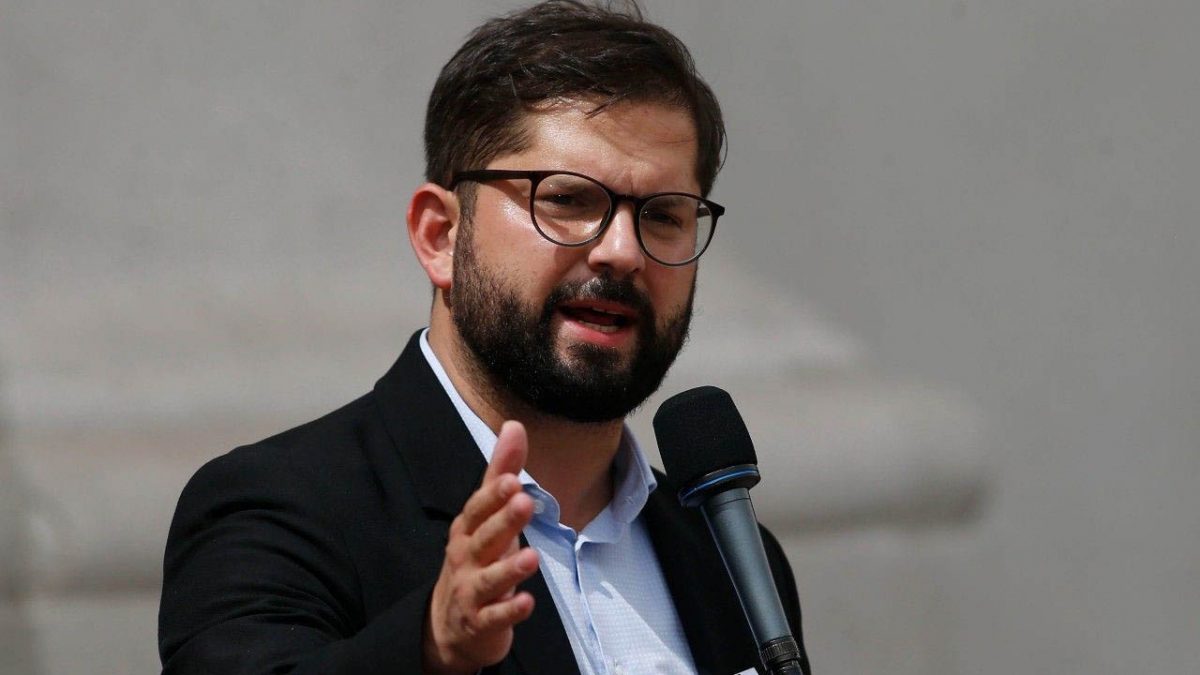SANTIAGO, (Reuters) – Chile’s President Gabriel Boric said yesterday he would nationalize the country’s lithium industry, the world’s second largest producer of the metal essential in electric vehicle batteries, to boost its economy and protect its environment.
The shock move in the country with the world’s largest lithium reserves would in time transfer control of Chile’s vast lithium operations from industry giants SQM SQMA.SN and Albemarle ALB.N to a separate state-owned company.
SQM, formally called Sociedad Quimica Y Minera de Chile, and Albemarle supply Tesla Inc TSLA.O, LG Energy 373220.KS and other electric vehicle (EV) and battery manufacturers.
“This is an opportunity for economic growth that will be difficult to beat in the short term,” Boric said in a televised address aired nationwide.
“This is the best chance we have at transitioning to a sustainable and developed economy. We can’t afford to waste it.”
Boric said future lithium contracts would only be issued as public-private partnerships with state control.
The government would not terminate current contracts, but hoped companies would be open to state participation before they expire, he said. SQM’s contract is currently set to expire in 2030.
SQM and Albermarle were not immediately available for comment.
Boric also said he would start a dialogue with communities, companies and legislators to create a lithium company owned completely by the state.
The company would need to be approved by Congress. Boric said he would present the plan to the legislature in the second half of the year.
Congress has been a check on many of Boric’s more ambitious proposals and shelved a proposed tax reform bill in early March.
Boric said he has instructed Corfo, the state development agency, to task state-owned Codelco, the world’s largest copper producer, with finding the best paths forward for the government’s participation in the extraction of lithium in the Atacama salt flats.
“If a public-private company is created to exploit lithium in the Atacama salt flats, it will be controlled by the state through Codelco.”
Boric added that the government would reach agreements with companies that currently hold rights to extract lithium in the salt flats but did not mention SQM or Albemarle by name.
Codelco, along with state miner Enami, will be given exploration and extraction contracts in areas where there are now private projects and will be asked to assess if they would benefit from state partnership before the national lithium company is formed, he said.
Other salt flats with lithium potential will be evaluated by the state, and private companies will have a “preferential option” to bid for the contract to extract lithium alongside the national lithium company.
“Nevertheless, projects with strategic values for the country, this partnership has to have a majority participation of the state,” Boric said.
The president added that there will be a division dedicated to advancing technology to minimize environmental impacts, including favoring direct lithium extraction over evaporation ponds.
Privately held Summit Nanotech Corp, which is developing direct lithium extraction technology and recently opened a Santiago office, welcomed Boric’s announcement.
“We’re very excited about his commitment to innovative technologies,” Summit spokesperson Amanda Sanregret said.
Boric said the country would look to protect biodiversity and share mining benefits with indigenous and surrounding communities as lithium extraction evolves.
“Today we present a national lithium strategy that’s technically solid and ambitious,” Boric said, adding that it will build “a Chile that distributes wealth we all generate in a more just way”.





